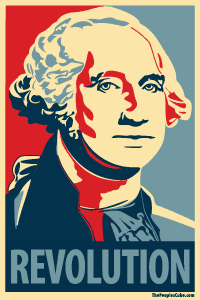By John Fonte | December 1, 2000 | Orthodoxy Today
John Fonte examines the philosophical antecedents of the culture war to show why the culture war takes the shape that is has. He reveals why a constant vigilance towards the permanent things that breathe life into the culture is necessary. The essay runs about fifteen printed pages but the time spent reading it will prove worthwhile.
As intellectual historians have often had occasion to observe, there are times in a nation’s history when certain ideas are just “in the air.” Admittedly, this point seems to fizzle when applied to our particular historical moment. On the surface of American politics, as many have had cause to mention, it appears that the main trends predicted over a decade ago in Francis Fukuyama’s “The End of History?” have come to pass — that ideological (if not partisan) strife has been muted; that there is a general consensus about the most important questions of the day (capitalism, not socialism; democracy, not authoritarianism); and that the contemporary controversies that do exist, while occasionally momentous, are essentially mundane, concerned with practical problem-solving (whether it is better to count ballots by hand or by machine) rather than with great principles.
And yet, I would argue, all that is true only on the surface. For simultaneously in the United States of the past few decades, recurring philosophical concepts have not only remained “in the air,” but have proved influential, at times decisive, in cultural and legal and moral arguments about the most important questions facing the nation. Indeed: Prosaic appearances to the contrary, beneath the surface of American politics an intense ideological struggle is being waged between two competing worldviews. I will call these “Gramscian” and “Tocquevillian” after the intellectuals who authored the warring ideas — the twentieth-century Italian thinker Antonio Gramsci, and, of course, the nineteenth-century French intellectual Alexis de Tocqueville. The stakes in the battle between the intellectual heirs of these two men are no less than what kind of country the United States will be in decades to come.
Refining class warfare
We’ll begin with an overview of the thought of Antonio Gramsci (1891-1937), a Marxist intellectual and politician. Despite his enormous influence on today’s politics, he remains far less well-known to most Americans than does Tocqueville.
Gramsci’s main legacy arises through his departures from orthodox Marxism. Like Marx, he argued that all societies in human history have been divided into two basic groups: the privileged and the marginalized, the oppressor and the oppressed, the dominant and the subordinate. Gramsci expanded Marx’s ranks of the “oppressed” into categories that still endure. As he wrote in his famous Prison Notebooks, “The marginalized groups of history include not only the economically oppressed, but also women, racial minorities and many ‘criminals.'” What Marx and his orthodox followers described as “the people,” Gramsci describes as an “ensemble” of subordinate groups and classes in every society that has ever existed until now. This collection of oppressed and marginalized groups — “the people” — lack unity and, often, even consciousness of their own oppression. To reverse the correlation of power from the privileged to the “marginalized,” then, was Gramsci’s declared goal.
Power, in Gramsci’s observation, is exercised by privileged groups or classes in two ways: through domination, force, or coercion; and through something called “hegemony,” which means the ideological supremacy of a system of values that supports the class or group interests of the predominant classes or groups. Subordinate groups, he argued, are influenced to internalize the value systems and world views of the privileged groups and, thus, to consent to their own marginalization.
Far from being content with a mere uprising, therefore, Gramsci believed that it was necessary first to delegitimize the dominant belief systems of the predominant groups and to create a “counter-hegemony” (i.e., a new system of values for the subordinate groups) before the marginalized could be empowered. Moreover, because hegemonic values permeate all spheres of civil society — schools, churches, the media, voluntary associations — civil society itself, he argued, is the great battleground in the struggle for hegemony, the “war of position.” From this point, too, followed a corollary for which Gramsci should be known (and which is echoed in the feminist slogan) — that all life is “political.” Thus, private life, the work place, religion, philosophy, art, and literature, and civil society, in general, are contested battlegrounds in the struggle to achieve societal transformation.
It is perhaps here that one sees Gramsci’s most important reexamination of Marx’s thought. Classical Marxists implied that a revolutionary consciousness would simply develop from the objective (and oppressive) material conditions of working class life. Gramsci disagreed, noting that “there have always been exploiters and exploited” — but very few revolutions per se. In his analysis, this was because subordinate groups usually lack the “clear theoretical consciousness” necessary to convert the “structure of repression into one of rebellion and social reconstruction.” Revolutionary “consciousness” is crucial. Unfortunately, the subordinate groups possess “false consciousness,” that is to say, they accept the conventional assumptions and values of the dominant groups, as “legitimate.” But real change, he continued to believe, can only come about through the transformation of consciousness.
Just as Gramsci’s analysis of consciousness is more nuanced than Marx’s, so too is his understanding of the role of intellectuals in that process. Marx had argued that for revolutionary social transformation to be successful, the world views of the predominant groups must first be unmasked as instruments of domination. In classical Marxism, this crucial task of demystifying and delegitimizing the ideological hegemony of the dominant groups is performed by intellectuals. Gramsci, more subtly, distinguishes between two types of intellectuals: “traditional” and “organic.” What subordinate groups need, Gramsci maintains, are their own “organic intellectuals.” However, the defection of “traditional” intellectuals from the dominant groups to the subordinate groups, he held, is also important, because traditional intellectuals who have “changed sides” are well positioned within established institutions.
The metaphysics, or lack thereof, behind this Gramscian worldview are familiar enough. Gramsci describes his position as “absolute historicism,” meaning that morals, values, truths, standards and human nature itself are products of different historical epochs. There are no absolute moral standards that are universally true for all human beings outside of a particular historical context; rather, morality is “socially constructed.”
Historically, Antonio Gramsci’s thought shares features with other writers who are classified as “Hegelian Marxists” — the Hungarian Marxist Georg Lukacs, the German thinker Karl Korsch, and members of the “Frankfurt School” (e.g., Theodor Adorno and Herbert Marcuse), a group of theorists associated with the Institute for Social Research founded in Frankfurt, Germany in the 1920s, some of whom attempted to synthesize the thinking of Marx and Freud. All emphasized that the decisive struggle to overthrow the bourgeois regime (that is, middle-class liberal democracy) would be fought out at the level of consciousness. That is, the old order had to be rejected by its citizens intellectually and morally before any real transfer of power to the subordinate groups could be achieved.
Read the full article here.
Related articles
- Understanding the Culture War: Gramscians, Tocquevillians and Others (johnmalcolm.me)
- Bill Whittle: Our Progressive Nightmare and the Conservative Solution (Parts 1 & 2) (johnmalcolm.me)
- Gramsci said (kkcygnet.wordpress.com)
- Antonio Gramsci (earthpages.wordpress.com)
- Book of the Day: The role of faith in the creation of a counter-hegemony for the commons (p2pfoundation.net)







